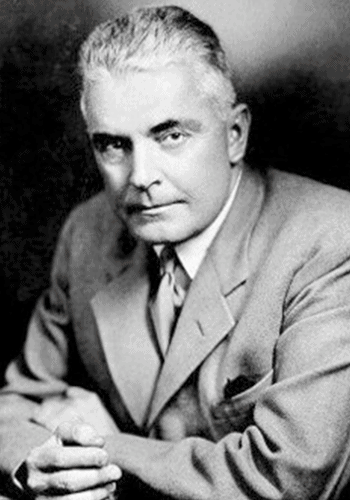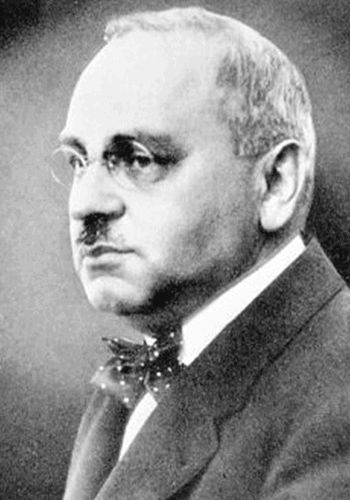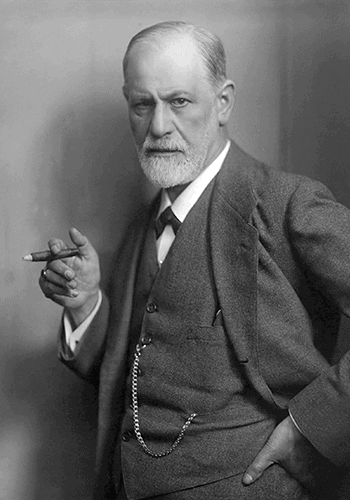Job description
The psychological psychotherapist has, as the name suggests, studied psychology. This is in contrast to the psychiatrist and the non-medical practitioner, who as a rule have either completed another course of study or further training without studying.
The path of the psychotherapist

The different procedures of psychotherapy
.
When we speak of a therapist in everyday life, we are generally referring to psychological psychotherapists who, after completing a 10-semester course of study in psychology, have completed at least three years of training to obtain their license to practice. This entitles them to work therapeutically and to treat patients. But even within “classical” psychotherapy there are differences in methodology that you need to know in order to make the right decision! To give you some orientation, we present all four different forms of therapy here.
The behavioral therapist
Behavior therapy is based on learning theory and assumes that, as the name suggests, “problematic” behavior has been learned.
Environmental stimuli trigger a specific response, which has been learned and occurs recurrently to the same or similar stimuli.

Example
Tim visited the bird park very often as a child. One day, when he got too close to an ostrich, it snapped at Tim. Since then, he has never visited a bird park again because he is incredibly afraid of birds.
In this example, the environmental stimulus was the snapping ostrich, which caused a reaction, namely the avoidance of bird parks. Since a bird park is not a dangerous place and Tim might want to visit such a park again in the future, the avoidance behavior is a “problematic” behavior that needs to be corrected. Behavioral therapy now relies on Tim learning that bird parks are not so dangerous after all and that he does not normally have to be afraid of an ostrich. The first step could be to talk about bouquets, then watch videos and finally visit a bird park. Positive feelings of success help Tim to forget this traumatic situation. This procedure is called Systematic Desensitization.
Areas of application include:
- Anxiety disorders
- Dependencies
- Affective disorders such as depression
- Stress disorders
- Eating disorders
- Personality Disorders
- eg.

The depth psychologist
Example
Julia has had a problem meeting new people for quite some time because she can’t manage to approach people. Through therapy, she realizes that this circumstance is due to the fact that her father always rejected her as a child. By resolving the unconscious conflict, she was able to improve this trait.
Through the joint discussions with the therapist, Tina was able to find out that her suffering was due to rejection by her father. Through a reevaluation, she managed to resolve this unconscious conflict, overcome the rejection and regain an extraverted nature.
Depth psychology is extraordinarily helpful in cases of suffering to which, at first glance, no origin can be assigned. Often just talking to the therapist helps to recognize and fulfill unconscious needs.
The psychoanalyst
Psychoanalysis is a recognized form of psychotherapy developed by the well-known neurologist Siegmund Freud. Although it later evolved into depth psychology, the “original form” is still practiced today. The main goal is to fathom the unconscious and thus end psychological suffering. Important and well-known methods include free association and dream interpretation.

The Systemic Therapist
The focus of systematic therapy is on the social context of mental disorders. The interaction within members of the family is given special attention. Thus, problems are not to be understood as disorders of the single individual, but more as disorders in the social environment, i.e. the system.
Possible systems are the family, but also the work environment, the circle of friends or similar social groups.
At the beginning of therapy, goals are concretized between therapist and client, but these can also change during therapy. If these goals are acceptable to both sides, therapy is started.
Examples of techniques of this theory are:
- Sociograms
- Circular questions
- Scale issues
- Metaphors
- etc.
List of Heidelberg Psychotherapists
.
Sarah Klein
Hauptstr. 22
69117 Heidelberg
+4962216555328
R. Zank
Obere Neckarstr. 10
69117 Heidelberg
+4962216541474
Prof. Dr. Annette Kämmerer
Karl-Ludwig-Str. 2
69117 Heidelberg
+491705993948
Marc Hörster
Kaiserstr. 52
69121 Heidelberg
+491782793558
M.Sc. Psych. Hannah Neubauer
Neckarstaden 18
69117 Heidelberg
+4917663870643
Friederike Thiel
Landhausstr. 15
69115 Heidelberg
+4917643365010
Dr. Sebastian Pohlack
Bergheimer Str. 69a
69115 Heidelberg
+491638358907
Dr. Ruth Schubert
Bahnhofstr. 53a
69115 Heidelberg
+4962216472791
Dr. Pascaline Herzenstiel
Kuno-Fischer-Str. 7
69120 Heidelberg
+4962216594974
Dr. Miriam Gschwendt
Berliner Str. 45
69120 Heidelberg
+49622135218120
Dr. Katharina Joest
Plöck 17-18
69117 Heidelberg
+4915737614494
Dr. Henning Freund
Wilhelmstr. 11
69115 Heidelberg
+4962213269566
Dr. Eva Blitzner
Rohrbacher Str. 57
69115 Heidelberg
+491785304847
Dr. Dipl.-Psych. Florian Theis
Bergstr. 85
69121 Heidelberg
+4962216737858
Dipl.-Psych. Stefanie Rath
Poststr. 48
69115 Heidelberg
+496221165501
Dipl.-Psych. Sabine Metzger
Uferstr. 12
69120 Heidelberg
+4962219030826
Dipl.-Psych. Nina Kaul
Bunsenstr. 18
69115 Heidelberg
+4962216727529
Dipl.-Psych. Nina Gramlich
Krahnengasse 9
69117 Heidelberg
+4962216732636
Dipl.-Psych. Maria Gehrt
Biethsstr. 20
69121 Heidelberg
+4962218953661
Dipl.-Psych. Lena von Freyhold
Brückenkopfstr. 1/2
69120 Heidelberg
+496221878790
Dipl.-Psych. Julia Aghotor
Werderstr. 48
69120 Heidelberg
+4917636956670
Dipl.-Psych. Joachim von Twardowski
Sofienstr. 11
69115 Heidelberg
+491608541112
Dipl.-Psych. Hannah Strimpf
Blumenthalstr. 40
69120 Heidelberg
+4962215992814
Dipl.-Psych. Fabian Hahn
Lutherstr. 25a
69120 Heidelberg
+4917663872363
Dipl.-Psych. Eva Senges-Anderson
Theaterstr. 18
69117 Heidelberg
+4962217285661
Dipl.-Psych. Constanze Brenner
Franz-Knauff-Str. 2-4
69115 Heidelberg
+4962216737828
Dipl.-Psych. Claudia Brauchle-Müller
Schröderstr. 46a
69120 Heidelberg
+4915110649743
Dipl.-Psych. Christina Lemken-Sikosek
Poststr. 4
69115 Heidelberg
+4915229688179
Dipl.-Psych. Arndt Linsenhoff
Hauptstr. 79
69117 Heidelberg
+496221182554
Dipl.-Psych. Anja Dodek
Theaterstr. 18
69117 Heidelberg
+4962217285669
Dipl.-Psych. Andrea Zimmermann
Uferstr. 12
69120 Heidelberg
+4917641103596
Dipl.-Psych. Andrea Grau
Poststr. 4
69115 Heidelberg
+4962216733366
Christoph Bundis
Poststr. 4
69115 Heidelberg
+4915731670445